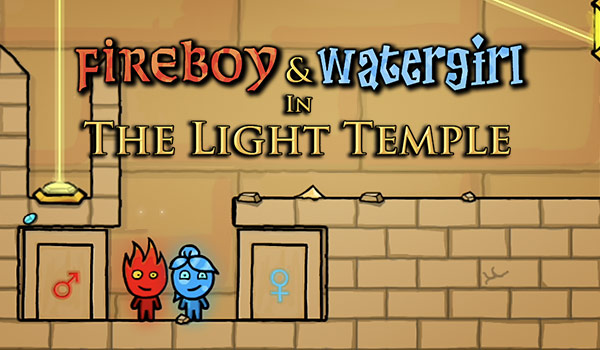R.E.P.O. (short for "Rapid Extraction of Prohibited Organisms") is a unique entry in the sci-fi horror genre that blends intense action with nerve-wracking suspense. The game challenges players to navigate a high-stakes environment filled with terrifying creatures and unpredictable threats. A key factor to its gripping atmosphere is its careful balance of pacing and scares, which work hand in hand to maintain tension and keep players on edge.
This article offers a deep dive into how R.E.P.O. manages pacing and scare tactics throughout the game. We will analyze the rhythm of gameplay, the timing of horror elements, and how these elements affect player engagement and fear. Alongside this, we evaluate pros, cons, and overall effectiveness with expert insight.
1. Establishing the Mood: Early Game Pacing
Slow Build-Up
R.E.P.O. begins with a relatively slow pace, introducing players to its dark and claustrophobic environments. This deliberate pacing allows players to acclimate to the unsettling atmosphere before the horror escalates.
Environmental Storytelling
Early levels use environmental cues—flickering lights, eerie sound effects, and abandoned corridors—to subtly instill unease without overwhelming players.
Tension Without Action
The absence of immediate threats during the introduction builds anticipation. This "quiet before the storm" technique is crucial for heightening future scares.
2. Introducing Threats: Mid-Game Acceleration
Increasing Intensity
As players progress, pacing accelerates. Enemies become more aggressive and frequent, pushing players to adopt a faster pace while maintaining careful observation.
Jump Scares vs. Psychological Horror
R.E.P.O. balances sudden jump scares with psychological horror—uncertain shadows, whispers, and flickers—that unnervingly linger.
Tactical Pacing
The game alternates between combat-heavy sequences and moments of eerie calm, giving players short breathing spaces that enhance the impact of scares.
3. The Role of Sound in Pacing and Fear
Audio Design as a Tension Builder
Sound cues in R.E.P.O. are carefully timed to manipulate player anticipation. Subtle creaks, distant growls, and sudden noises prime players for possible encounters.
Dynamic Soundscapes
The game uses dynamic audio that shifts based on player location and actions, effectively pacing tension and relief cycles.
Silence as a Weapon
Strategic use of silence heightens tension, forcing players to focus intensely and expect danger at any moment.
4. Level Design and Its Influence on Pacing
Corridors and Open Spaces
The design of R.E.P.O.'s levels alternates between tight, claustrophobic corridors and larger open areas. Narrow hallways increase claustrophobia and pacing, while open spaces allow players to plan but also heighten vulnerability.
Choke Points and Ambushes
Corridor choke points are often used for scripted scares or ambushes, creating spikes in pacing and fear.
Exploration vs. Urgency
Players must balance exploration with urgency—lingering too long can mean facing tougher enemies or traps.
5. Enemy Design and Its Impact on Scares
Varied Enemy Behavior
Enemies in R.E.P.O. display diverse AI patterns—from stealthy stalkers to aggressive pursuers—which affects pacing by forcing players to adapt constantly.
Predictable vs. Unpredictable Threats
The unpredictability of enemy behavior increases fear. Knowing an enemy is near but not when or how they will attack keeps players tense.
Resource Scarcity and Its Role
Limited ammo and health resources slow player progression, raising stakes and enhancing the dread of encounters.
6. Narrative Pacing: Storytelling to Complement Horror
Story Beats and Scare Timing
Narrative revelations in R.E.P.O. are spaced to complement scares, using plot twists and character development to maintain engagement.
Environmental Lore
Scattered logs, messages, and visuals provide context and build tension through story pacing rather than action alone.
Balancing Mystery and Clarity
The game carefully reveals its mysteries to maintain intrigue without frustrating players.
7. Player Agency and Its Effect on Pacing
Control Over Exploration
R.E.P.O. gives players freedom to explore, which affects pacing. Some players may slow down to soak in atmosphere, while others rush forward, increasing encounter frequency.
Risk vs. Reward Mechanics
Optional areas and side objectives provide risk-reward scenarios, where players decide if they want to risk slowing down or pressing on quickly.
Impact on Scare Effectiveness
Player pacing choices can make scares feel more or less impactful, highlighting the dynamic nature of the game's tension management.
8. Player and Critical Reception on Pacing and Horror
Community Feedback
Players often praise R.E.P.O. for its ability to keep suspense fresh through pacing and sound design but mention moments where pacing breaks due to enemy or level design flaws.
H3: Critical Acclaim
Reviewers commend the game for its smart pacing mechanics and tension-building audio but note that occasional inconsistencies can affect overall immersion.
H4: Popular Scare Moments
Certain scripted scares have become iconic within the community for their timing and shock value.
10. Future Improvements and Recommendations
Potential Enhancements
Suggestions include smoothing out pacing transitions, improving enemy AI variability, and adding more dynamic narrative beats.
H3: Player Customization of Pacing
Options allowing players to adjust difficulty or pacing could increase accessibility.
H4: Enhanced Audio Modulation
Further refining sound layering and silence cues could amplify scare effectiveness.
Conclusion
R.E.P.O. masterfully blends pacing and scares to deliver a tense, engaging horror experience. Its use of environmental storytelling, dynamic sound design, and varied enemy encounters work together to maintain suspense and keep players on edge. While some pacing inconsistencies and AI limitations exist, the overall design successfully creates a haunting atmosphere that resonates long after gameplay ends.
For fans of sci-fi horror, R.E.P.O. offers a well-crafted balance of adrenaline-pumping action and psychological terror, making it a noteworthy title in the genre.

































